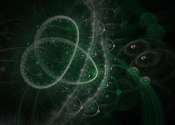Euclid telescope: Scientist reports on his quest to understand the nature of dark matter and dark energy
On July 1, 2023, Euclid, a unique European space telescope was launched from Cape Canaveral. The launch was undoubtedly the highlight of my career as an astronomer, but witnessing the result of years of work being put on ...









